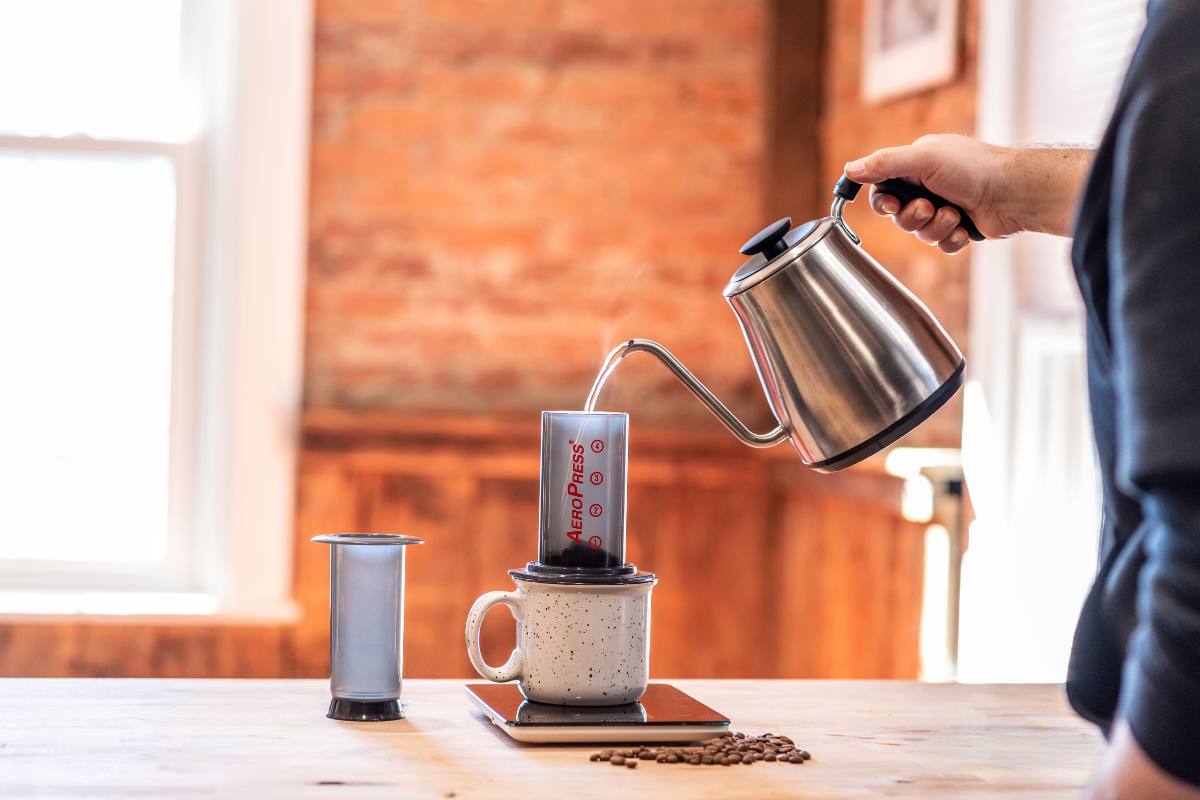When brewing coffee, most people focus on the beans, roast, and brewing method. But there’s one crucial element that often gets overlooked: water quality. Considering that coffee is about 98% water, the type of water you use can significantly impact how your coffee tastes — sometimes more than the beans themselves.
Why Water Matters in Coffee
Water is not just a neutral ingredient; it contains minerals and compounds that interact with the coffee grounds during extraction. The right water can highlight the coffee’s best flavors, while poor-quality water can make even the finest beans taste dull, bitter, or flat.
What Is in Water That Affects Coffee?
- Minerals: Primarily calcium and magnesium, which help extract coffee flavors.
- Bicarbonates: Affect the water’s alkalinity. Too high, and it makes coffee taste flat or soapy.
- Chlorine: Common in tap water; gives coffee an undesirable chemical taste.
- Total Dissolved Solids (TDS): A measure of everything dissolved in the water — minerals, salts, organic matter.
Ideal Water Composition for Coffee
According to the Specialty Coffee Association (SCA), the ideal water for brewing coffee should have:
- Calcium Hardness: 50–175 ppm (parts per million)
- Magnesium: A key player in highlighting sweetness and body
- Total Hardness: Around 70–100 ppm for balance
- Alkalinity: 40 ppm — controls acidity and brightness
- pH Level: Neutral, around 7.0
- No Chlorine: Should be completely removed
How Poor Water Affects Coffee
- Too Hard (High Minerals): Over-extraction, resulting in harsh, bitter flavors.
- Too Soft (Low Minerals): Under-extraction, leading to sour, weak, or watery coffee.
- High Chlorine: Adds an unpleasant chemical taste.
- High Bicarbonates: Flattens acidity, resulting in bland coffee.
Common Water Sources and Their Effects
| Water Source | Impact on Coffee |
|---|---|
| Tap Water | Often contains chlorine; inconsistent mineral levels. |
| Filtered Water | Better taste; removes chlorine but may reduce some minerals. |
| Bottled Water | Varies by brand; look for balanced mineral content. |
| Distilled Water | Too pure; lacks minerals needed for proper extraction. |
| Reverse Osmosis | Needs remineralization; otherwise, coffee tastes flat. |
How to Improve Your Water for Coffee
- Use a water filter: Removes chlorine and heavy metals. Brita or Pur filters are common household solutions.
- Invest in a coffee-specific water solution: Brands like Third Wave Water offer mineral packets designed for ideal coffee brewing.
- Check your water hardness: Use inexpensive water test kits to measure mineral levels at home.
- Avoid distilled or RO water unless remineralized.
Quick DIY Coffee Water Recipe
If you want to control your water easily, try this:
- Use 1 liter of distilled water
- Add 0.85 grams of baking soda (sodium bicarbonate)
- Add 1.65 grams of Epsom salt (magnesium sulfate)
This provides a balanced mineral profile similar to professional recommendations.
Water for Different Brewing Methods
- Espresso: Sensitive to water hardness. Ideal water enhances crema and balances acidity.
- Pour-Over: Highlights acidity and clarity, so clean water is critical.
- French Press: Full immersion means water quality affects body and flavor richness.
- Cold Brew: Needs balanced water to avoid overly sour or bitter results.
The Most Overlooked Ingredient
In fact, many coffee professionals argue that water is the most overlooked but most impactful ingredient in brewing. You can invest in the best beans, grinders, and brewing equipment, but if your water isn’t right, your coffee will never reach its full potential. This is why top-tier cafés and roasters often test and adjust their water chemistry to match the coffee profile they want to highlight. Even slight differences in mineral content can make the same coffee taste sweeter, more acidic, or more bitter. Once you start controlling your water, you’ll notice how much brighter, cleaner, and more delicious your coffee becomes — every single cup.
Conclusion: Great Coffee Starts with Great Water
Water isn’t just a background player in your coffee — it’s one of the most important ingredients. Understanding how minerals and compounds in water interact with your coffee unlocks a whole new level of flavor control. Whether you’re brewing a rich espresso or a delicate pour-over, improving your water quality can instantly upgrade every cup.
